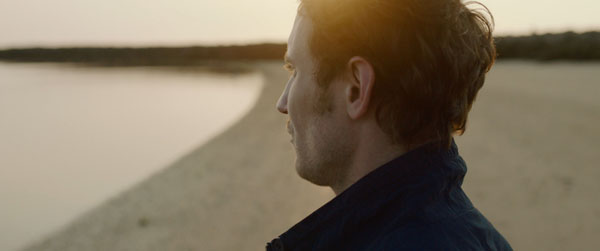“With 14 films, including nine full-length fictional features, and five medium-long fictional and documentary films (20 to 60 minutes), the selection for the Perspektive Deutsches Kino 2014 has been completed,” announces the Berlin International Film Festival, whose 64th edition runs from February 6 through 16. Back in December, the Berlinale unveiled the first six titles. We’ve also seen first rounds for the Competition, Panorama, and Generation programs.
The lineup with occasional notes:
Ester Amrami’s Anderswo (Anywhere Else). Follows “Noa (Neta Riskin) from Berlin to Israel, her homeland. Here she experiences how a person can at times feel just as misunderstood in their old home as in their new one.”
Valerie Heine’s El carro azul (The Blue Car). The “moving story of a reunion between two brothers” in Cuba.
Levin Hübner’s Bosteri unterm Rad (Bosteri Beneath the Wheel). A documentary that “tells of a village and its inhabitants in the Kyrgyz steppe, situated on the northern shore of Issyk Kul, the second largest mountain lake in the world.”
Jöns Jönsson’s Lamento. Winner of the First Steps Award, this is “a quiet, touching film that revolves around survivor’s guilt (starring Gunilla Röör) following a suicide.”
Till Kleinert’s Der Samurai. A “nightmarish thriller” seeing its world premiere as a Perspektive Midnight Movie.
Maximilian Leo’s Hüter meines Bruders (My Brother’s Keeper). The section’s opening film. Gregor, 32, a successful doctor, struggles to deal with the erratic behavior of his brother, Pietschi, 29.
Mirjam Leuze’s Flowers of Freedom. A documentary that follows a group of activists in the Kyrgyz village of Barskoon who “have been fighting here for compensation for the many victims of a cyanide spill caused by Kumtor, a Canadian-operated gold mine.”
Johannes Naber’s Zeit der Kannibalen (Age of Cannibals). An “exciting and scathing cinematic feat that paints a picture of global economy in its worst human perversions, with hearty helpings of sarcasm and black humor (starring Devid Striesow, Sebastian Blomberg and Katharina Schüttler).”
Georg Nonnenmacher’s Raumfahrer (Spacemen). A documentary. “The observation slit in a prison transport bus gives texture to the thoughts of its passengers.”
Franziska Schönenberger’s Amma & Appa. A documentary focusing on the directors’ wedding plans that “spotlights the clash of Bavarian and Indian value systems that must be faced with sensitivity and humor.”
Axel Stein’s Tape_13. A horror film. “With the successful production company Rat Pack (Christian Becker, Benjamin Munz) behind him, [Stein] has made a brilliant homage to The Blair Witch Project.”
Oskar Sulowski’s Die Unschuldigen (The Innocents). “Told entirely from the perspective of a six-year-old boy (Juri Winkler), the film is a fragmentary look at the problems of its adults (Clemens Schick, Iza Kala) and their reflections on the child.”
Nicole Vögele’s nebel (fog). A documentary that “tracks fog and solitude, while relying on the wind, animals, the sky and atmospheres.”
Philip Widmann and Karsten Krause’s Szenario (Scenario). “[C]hronicles a love affair from 1970, in a city that may well be an allegory for post-war West Germany.”
For news and tips throughout the day every day, follow @KeyframeDaily on Twitter and/or the RSS feed. Get Keyframe Daily in your inbox by signing in at fandor.com/daily.




